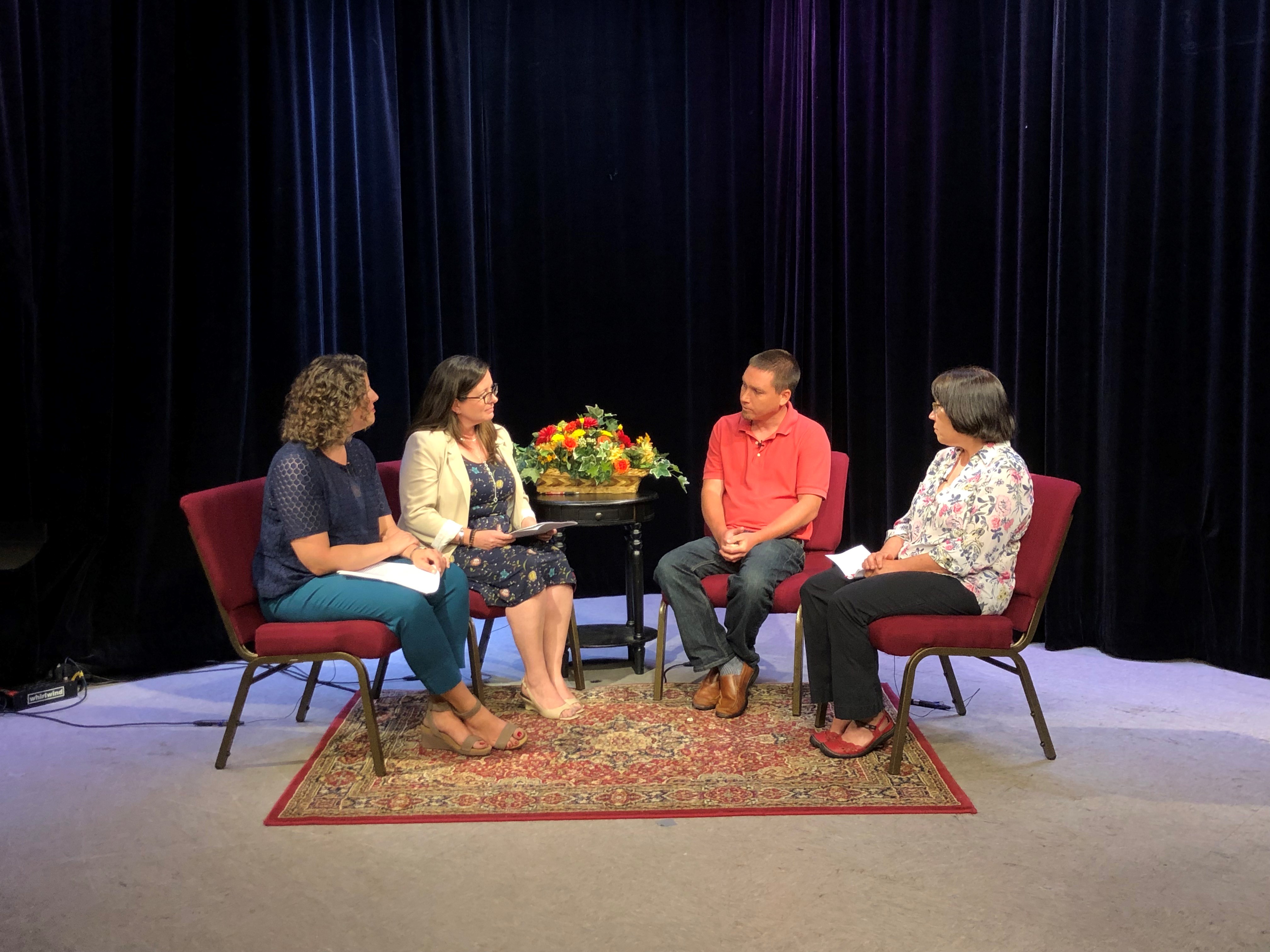Behavioral Health

America is in the midst of a mental health care crisis, with a critical deficit in both the understanding and treatment of mental illness.
Join us in increasing awareness and improving access to care.
Who We Are
 The Behavioral Health Task Force brings together mental health providers to share resources, examine and develop best practices and identify service gaps that we can collaboratively address. Working together, our objectives are to reduce stigma associated with mental health issues, increase awareness of mental health issues and available services, improve access to mental health care, and identify and address mental health issues that face our community.
The Behavioral Health Task Force brings together mental health providers to share resources, examine and develop best practices and identify service gaps that we can collaboratively address. Working together, our objectives are to reduce stigma associated with mental health issues, increase awareness of mental health issues and available services, improve access to mental health care, and identify and address mental health issues that face our community.
Task Force Chairs
Daniela Johnson, Vinfen
Matthew Page-Shelton, Front Line Initiative
Join Us
 We urge you to join us in the fight to address this crisis and help create healthier minds and bodies in our region. Attend one of our task force meetings or contact Task Force Chairs Daniella Johnson, or Matthew Page-Shelton to learn about how you can get involved. Mental Health Task Force generally meets the fourth Wednesday of every month from 10-11 a.m. Upcoming meetings are:
We urge you to join us in the fight to address this crisis and help create healthier minds and bodies in our region. Attend one of our task force meetings or contact Task Force Chairs Daniella Johnson, or Matthew Page-Shelton to learn about how you can get involved. Mental Health Task Force generally meets the fourth Wednesday of every month from 10-11 a.m. Upcoming meetings are:
- Wednesday, June 25, 2025
- July & August Cancelled
- Wednesday September 24, 2025
- Wednesday October 22, 2025
Addressing the Need
There is little dispute that America is in the midst of a mental health care crisis, with a critical deficit in both the understanding and treatment of mental illness. Although mass shootings and other violence focus the public’s attention on mental illness, patients and families coping with it suffer quietly every day.
Nationally
- Mental health disorders account for the top causes of disabilities nationally and
worldwide including depression, schizophrenia, and obsessive-compulsive disorder. - An estimate of 26% of Americans 18 years and older suffer from a diagnosable mental disorder each year. In 2021, 57.8 million adults live with mental illness in the U.S.
- Data in 2021 shows that people with depression have an increased risk of cardiovascular disease, diabetes, stroke, pain, Alzheimer’s disease, and at a higher risk for osteoporosis.
- On average, individuals with serious mental illnesses lose approximately 15 years of
potential life, living up to 62 years. - There are about 132 suicides per day, claiming the lives of 49,449 people in 2022.
Findings of psychological autopsy studies reveal that around 90% of individuals who
died by suicide had a possibly treatable mental health condition when they passed away.
Locally
The Greater Lowell Health Needs Assessment, a collaborative effort of the GLHA, Lowell General Hospital, and University of Massachusetts Lowell, has identified mental health as among the most serious unmet needs in Greater Lowell.
Public health data supports concerns that the Greater Lowell area, and the City of Lowell in particular, face serious barriers to effective mental health care, including lengthy wait lists for mental health treatment, language barriers with providers, and lack of care coordination, leading to disengagement and lack of trust.
- Statewide, 31.4% of Massachusetts adults reported symptoms indicative of either
depressive or anxiety disorders. Conversely, within the Greater Lowell area, 11.2% of
residents reported experiencing fifteen or more days of poor mental health. - Individuals disclosing suicidal ideation were overrepresented from Lowell, constituting 34.5% of all survey respondents but comprising 45.6% of those who reported suicidal thoughts.
- Close to 9% of survey respondents indicated their inability to afford mental health
services, while access to mental health services was identified as the third most crucial community resource, with 26% of participants listing it among their top three resource priorities.
For additional resources, visit our Resources page.
Our Impact
Since its inception, the Behavioral Health Task Force has made significant progress in increasing awareness and access to services throughout Greater Lowell.
Current Initiatives
- Embarked on a mental health project in collaboration with the Greater Lowell Technical High School to create little libraries to be distributed across Greater Lowell, providing helpful mental health support information, flyers, pamphlets, and other literature that resident can access anonymously.
- In collaboration with the Substance Use & Prevention Task Force, hosted a virtual support line on Christmas Eve and Christmas Day for those who may need to talk to someone during the holidays.
- Collaborated with the Health Equity Task Force to host a QPR (Suicide Prevention) Training to the GLHA network.
Past Initiatives
- Promoting regional collaboration regarding issues related to individuals with behavioral health disorders.
- The task force launched a Behavioral Health & Substance Use treatment audit for the Greater Lowell region, to assess the availability of services so that we can advocate for unaddressed needs. The audit will be carried out by task force members, community members, students, and GLHA staff and interns.
- Creating an information-sharing environment that enables a well-informed behavioral health community with representation from each regional area.
- Providing additional behavioral health round table discussions on topics of common interest.
- Identifying projects/deliverables that meet the needs of the multi-disciplinary behavioral health community.
